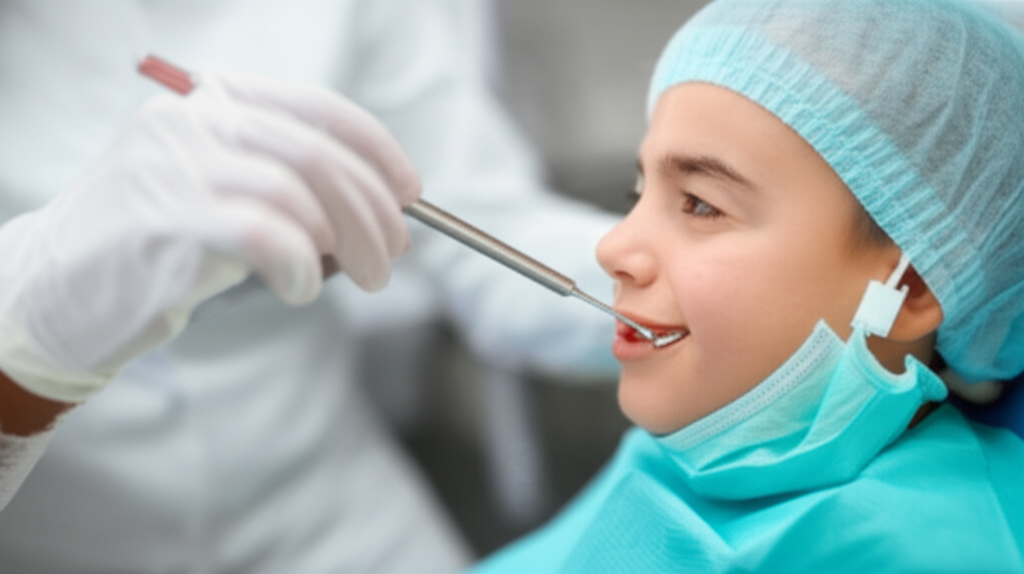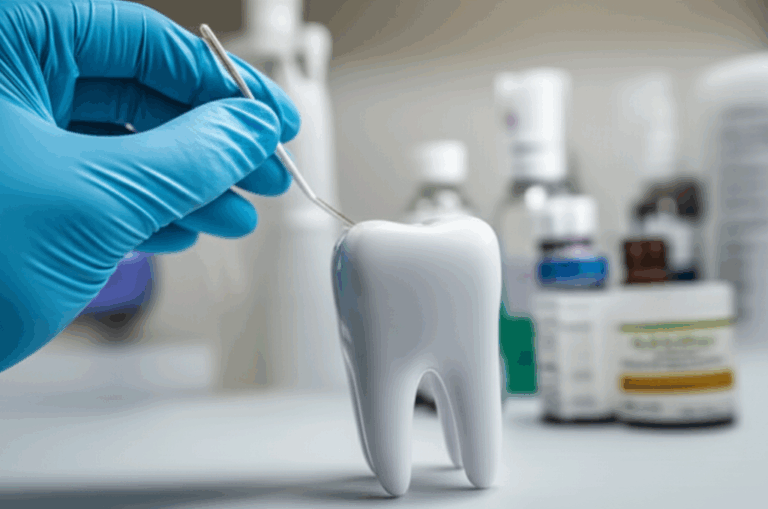
What Does DMD Mean for a Dentist? Unpacking the Degree and Its Impact
Have you ever looked at your dentist’s business card and wondered what do all those letters after their name stand for? Today, we’ll make DMD easy to understand and see why it matters for you. This is a friendly guide so you can tell the difference between DMD and DDS, learn what it takes to become a dentist, and find out what really matters for you as a patient or someone thinking about going into dentistry. If you want to know whether those letters make a difference in your dental care or your career choices, keep reading.
Table of Contents
1. Introduction: What’s In a Dentist’s Degree?
When I was a kid, every time I had a dental check, it felt a bit mysterious. All I knew was my dentist wore a white coat, had steady hands, and could fix teeth. Later, I noticed the letters after their name—DMD, DDS—and thought, “What do they mean?” Maybe you have wondered too.
A lot of people think DMD and DDS are very different—like comparing a doctor to a nurse. That’s not right. Let’s figure this out and see why these letters can help you trust your dentist and maybe help you plan your own path in dentistry.
2. What is a DMD Degree?
DMD stands for Doctor of Medicine in Dentistry or Doctor of Dental Medicine. Sounds fancy, but here’s what it really means:
- Dentists who finish certain dental schools get this degree.
- “Dentariae Medicinae Doctor” is the Latin for DMD.
How did this name start? Harvard University’s School of Dental Medicine started it in 1867. They wanted a name that showed dentists learn about medicine and surgery too. And so DMD came to be.
Students study hard stuff like anatomy, medicine for teeth, and hands-on dental skills. They don’t just read—they practice on real patients, from cleanings to root canals and even replacing teeth.
3. DMD vs. DDS: Are They Really Different?
Now, the big question: Is a DMD better or worse than a DDS? Easy answer—there’s really no difference in what they learn or can do.
- DDS means Doctor of Dental Surgery—it’s just a different name for the same thing.
- Both degrees are checked by the Commission on Dental Accreditation (CODA) and use the same education plan.
- Whether it’s DMD or DDS, your dentist passed the same tests (like the National Board Dental Examination) and showed their skills.
It’s like wearing different jerseys in the same game. The team (the dental school) picks the name.
4. Why Do Some Schools Offer DMD and Others DDS?
So why two names? It’s about tradition and what the school likes:
- Some colleges, like Harvard, Tufts, and the University of Pennsylvania, wanted their dentist degree to be closer to medicine and called it DMD.
- Others, like New York University and the University of Southern California, stayed with DDS for historic reasons.
There’s no secret difference in skills or pay. It’s just history. About 20-25 dental schools in the U.S. give DMDs, while 50 or so give DDS degrees. Both groups make great dentists.
5. How Does a Dentist Earn a DMD (or DDS)?
So, what does it take to get a DMD? It’s a tough journey for your mind and hands.
Here’s how:
After all this, DMD and DDS dentists can handle anything from tooth care to putting in implants.
6. What Does a DMD Mean for You as a Patient?
Going to the dentist can make you nervous! You want to know you’re in good hands.
A DMD means:
- Trust: Your dentist finished one of the hardest education paths in health care.
- All Care Covered: From cleanings to crowns to braces advice, DMDs can do it.
- High Standards: DMD dentists must follow rules to give good, honest care.
I tell my family: It’s not about the letters. It’s about if your dentist really cares, is skilled, and keeps learning.
7. Can a DMD Dentist Do the Same Things as a DDS Dentist?
Yes! DMD and DDS are the same in what they can do after school and licensing.
Both can:
- Start a dental practice.
- Work in hospitals, or community dental clinics.
- Join big dental companies or even work for the military.
- Do general dental work and train to become specialists like orthodontists or surgeons.
Want to know about the labs and tools they use? Many dentists work with modern partners like a digital dental lab or a ceramics lab to make the best crowns and bridges.
8. Myths and Facts: Clearing Up Common Confusion
Let’s clear up three big wrong ideas people have about DMD and DDS:
Myth 1: One Degree is Better than the Other
Fact: Both mean your dentist finished the same tough school, passed the same tests, and can legally work anywhere.
Myth 2: One Degree Means More Money
Fact: A dentist’s pay comes from how long they work, where they work, and if patients trust them—not the letters in their degree.
Myth 3: The Letters Limit Dental Specialties
Fact: Any DMD or DDS can go on to specialize, like doing dental implant work or straightening teeth.
9. What Can You Do With a DMD Degree?
Being a dentist gives you many options. With a DMD, you can:
- Run your own dental office.
- Become a specialist—like an orthodontist or a tooth nerve expert.
- Teach new dentists and lead a dental school.
- Work in public health for whole communities.
- Try out the newest dental tech.
Some DMDs work with top-notch labs, such as a crown and bridge lab or an emax lab for custom smiles.
10. Choosing the Right Dentist: What Should Really Matter?
When picking a dentist, don’t worry about DMD or DDS. Here’s what to look for instead:
- Do they learn about new dental science and keep taking classes?
- Do they listen to you?
- Are they caring, careful, and trustworthy?
- Do they work with labs using good materials and tools, like a well-known zirconia lab?
- Are they part of groups like the American Dental Association (ADA)?
A good dentist always puts you first.
11. Quick Reference Table: DMD vs. DDS
| Feature | DMD (Doctor of Dental Medicine) | DDS (Doctor of Dental Surgery) |
|---|---|---|
| Full Latin Name | Dentariae Medicinae Doctor | Doctor Chirurgiae Dentalis |
| First Awarded | Harvard University, 1867 | Baltimore College of Dental Surgery, 1840 |
| Number of U.S. Schools | About 20-25 | About 55-60 |
| Accreditation Body | CODA | CODA |
| Curriculum | Same | Same |
| Clinical Skills | Same | Same |
| Legal Scope | No difference | No difference |
| Licensure | Same requirements | Same requirements |
| Specialization | Same chances | Same chances |
| Career Impact | No difference | No difference |
| Example Universities | Harvard, Tufts, UPenn, Pitt | NYU, USC, Michigan, Ohio State |
12. Bullet Point Summary of Key Takeaways
- DMD and DDS are both names for the same dental degree.
- Both degrees mean your dentist is trained, licensed, and ready to take care of your teeth.
- Schools pick the name based on tradition, not on what’s taught.
- Dentists with either degree can become specialists, earn the same pay, and start any kind of dental office.
- Choose your dentist for their caring attitude, skills, and good name—not the letters after their name.
- Top dentists work with the best labs—like digital, ceramic, or china dental lab—to give you strong, nice-looking dental work.
- Dental care is about your health, trust, and feeling comfortable—not just a degree title.
13. Frequently Asked Questions
Q: Does DMD mean the dentist is a medical doctor?
A: No, DMD stands for Doctor of Dental Medicine. Dentists are tooth and mouth experts, not the same as a family medical doctor.
Q: Will my insurance care if my dentist is a DMD or DDS?
A: Nope! Insurance treats both degrees the same.
Q: Can a DMD do implants, braces, or dentures?
A: Yes. With extra courses, any DMD or DDS can do special work like implants, braces, or making dentures in a top lab.
Q: Is one degree harder to get than the other?
A: No. Both take the same tough work and are respected the same.
Q: How do I know if my dentist is really good?
A: Check if they went to an ADA-approved school, have a real license, and keep up with new ways to fix teeth.
Reviewed by Dr. Joe Dental, DMD
Board Certified General Dentist & Member, American Dental Association
References:
- American Dental Association (ADA)
- Commission on Dental Accreditation (CODA)
- Harvard School of Dental Medicine
- U.S. Bureau of Labor Statistics
- National Board Dental Examinations
That’s it! The next time you see “DMD” or “DDS” on a sign, you’ll know what it means—and you’ll remember the most important thing is the dentist’s skill and care. Trust their training, enjoy your happy smile, and know you’re in good hands.








